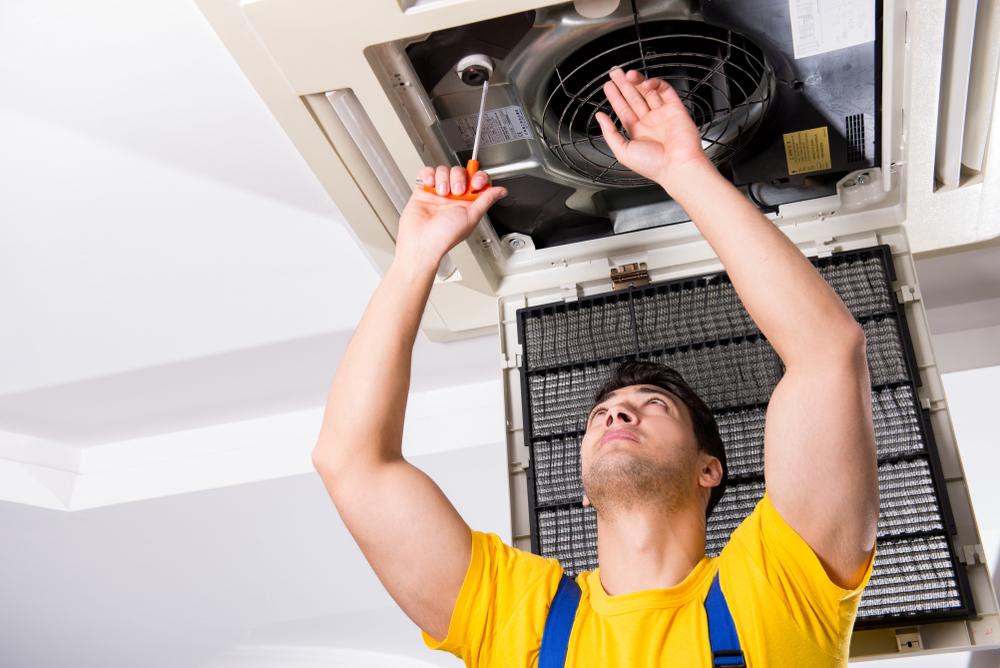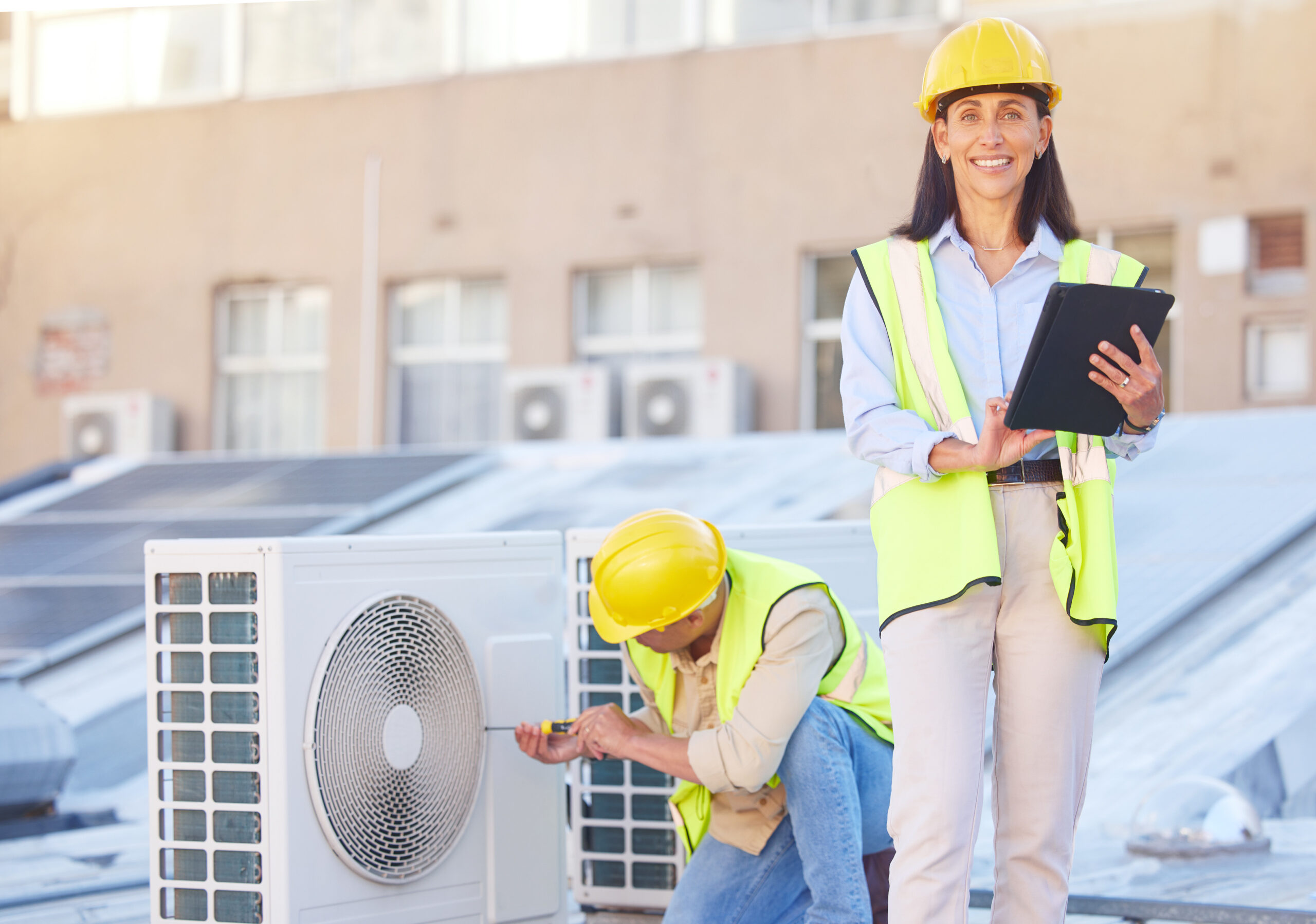Top Reasons to Schedule heat pump replacement ooltewah tn
Top Reasons to Schedule heat pump replacement ooltewah tn
Blog Article
Picking Between a Warm Pump and Furnace: Key Factors To Consider for Your A/c Demands
When evaluating heating alternatives for HVAC requires, the decision between a warm pump and a furnace can be intricate. Each system supplies distinctive benefits tailored to certain climates and power performance objectives. Recognizing these differences is necessary for making an educated choice. Trick variables such as setup costs and ecological influence additionally complicate the option procedure. Which alternative really lines up with one's convenience and sustainability preferences? The adhering to areas will certainly check out these factors to consider in information.
Understanding Warmth Pumps: Exactly How They Function and Their Benefits
While several house owners consider different home heating options, understanding how heatpump function and their advantages can greatly affect their choice. Heatpump operate by moving heat instead of generating it. In the winter months, they draw out heat from the outdoors air or ground and transfer it inside, while in the summer, they reverse this procedure, cooling the home by getting rid of heat outside. This dual performance makes them functional for year-round climate control.One of the primary benefits of warmth pumps is their power efficiency. They use substantially much less electrical power contrasted to traditional heating systems, potentially causing reduced energy bills (furnace replacement). In addition, heatpump have a smaller carbon impact, making them an environmentally friendly option. They additionally call for much less upkeep than standard systems, adding to lasting price financial savings. Generally, recognizing the mechanics and benefits of heat pumps can help homeowners make educated choices concerning their home heating and cooling down needs
Exploring Heaters: Types, Operation, and Benefits
Heating systems are available in numerous types, consisting of gas, electrical, and oil designs, each with unique operational mechanisms. Understanding these distinctions is important, as they impact performance and home heating efficiency. Additionally, heaters supply numerous advantages, such as consistent heat result and integrity in chillier climates.
Sorts of Heating systems
Heating unit can differ substantially in style and procedure, with heating systems being a prominent choice amongst property owners. There are a number of types of heaters, each making use of various gas sources and technologies. Gas heaters prevail, leveraging gas to generate warm effectively. Electric heating systems, on the other hand, utilize electric resistance to create warmth, frequently preferred for their uncomplicated installation. Oil heaters, while less usual, are effective in locations with limited gas accessibility (heat pump replacement ooltewah tn). Additionally, condensing heaters optimize energy effectiveness by reusing and catching exhaust gases. Each kind operates with a system of warmth exchangers and ductwork to distribute cozy air throughout a home. Understanding the distinctions in between these heater kinds is vital for notified HVAC decisions
Advantages of Heaters
For property owners seeking reliable heat during cool months, the benefits of heating systems are significant. Heaters supply consistent home heating, guaranteeing also temperatures throughout the home. They are specifically efficient in extreme cold, usually exceeding heatpump in frigid conditions. Various types, including gas, electric, and oil heating systems, supply adaptability to fulfill diverse needs and preferences.Furnaces also tend to have lower first installment expenses compared to heatpump, making them a more available choice for numerous. Their robust style adds to a much longer life expectancy, with lots of units lasting over 15 years with proper maintenance. Additionally, modern heaters are frequently furnished with advanced modern technology for enhanced effectiveness, which can lead to decreased power expenses. On the whole, heating systems stay a reliable option for effective home heating.

Power Efficiency: Comparing Warm Pumps and Furnaces
When comparing power effectiveness in between warm pumps and heaters, the Seasonal Energy Efficiency Proportion (SEER) plays a crucial function in determining performance. In addition, a functional cost analysis exposes the long-term monetary implications of each system. Comprehending these elements can guide home owners in making notified choices regarding their heating options.
Seasonal Energy Performance Proportion
Power performance plays a crucial function in the decision-making process between heat pumps and heating systems, specifically when taking into consideration the Seasonal Power Effectiveness Ratio (SEER) This statistics procedures the cooling efficiency of heatpump over an entire air conditioning season, providing a standardized way to review performance. Greater SEER ratings suggest higher power effectiveness, translating to lower power intake and decreased utility expenses. In contrast, furnaces are usually examined using the Annual Fuel Application Performance (AFUE) score, which mirrors home heating performance. When contrasting these 2 systems, house owners need to focus on SEER ratings for heatpump, as they straight influence overall energy savings and environmental sustainability. A complete understanding of SEER can significantly affect the long-term complete satisfaction and cost-effectiveness of the chosen HVAC service.
Operational Price Evaluation
Recognizing the functional expenses related to heat pumps and furnaces is crucial for house owners reviewing their alternatives. Heatpump generally supply greater energy efficiency, transforming electric power into warmth with marginal waste. This causes reduced monthly utility costs, especially in moderate environments. Alternatively, conventional heating systems, particularly gas models, might have reduced ahead of time prices Your Domain Name yet can incur greater operational expenses gradually as a result of sustain costs and performance ratings.Moreover, heat pumps can work as both home heating and cooling down systems, potentially minimizing the requirement for separate cooling and heating systems. While preliminary financial investments for heatpump might be higher, their long-term savings in power effectiveness can make them a more cost-efficient selection for many homes. Mindful evaluation of local energy rates is crucial to determine the very best alternative.
Installation Costs: What to Anticipate for Each Furnace
Installation costs for home heating systems can differ substantially between heat pumps and furnaces, affecting homeowners' decisions. Warm pumps usually have greater upfront setup expenses, usually varying from $3,500 to $8,000, depending upon the device dimension and complexity of installation. This includes the outside system, indoor handling system, and required ductwork alterations. On the other hand, furnaces often tend to have reduced preliminary costs, balancing between $2,500 and $6,000, which can be appealing for budget-conscious home owners. Setup costs can enhance if substantial ductwork is required.Moreover, the selection of gas type for heating systems-- all-natural gas, propane, or electric-- can additionally impact installation expenses. While heatpump supply power efficiency, their initial financial investment might prevent some buyers. Eventually, evaluating setup expenses along with lasting cost savings and effectiveness will certainly assist property owners in making notified decisions regarding their home heating systems.
Environment Considerations: Which System Carries Out Better in Your Area
Just how do climate problems influence the effectiveness of heating systems? The efficiency of warm pumps and heating systems can vary substantially depending upon the local climate. In moderate climates, warm pumps stand out by efficiently transferring heat from the outside air, making them an energy-saving option. Nonetheless, their performance lessens see here in extremely cold temperature levels, where they might struggle to remove sufficient warm. Conversely, heating systems, specifically gas models, provide regular and trustworthy warm regardless of outdoor problems, making them more effective in cooler regions.In locations that experience milder winters, warmth pumps can operate efficiently year-round, supplying both heating & cooling. On the other hand, regions with harsh winters months frequently gain from the effectiveness of heaters. Ultimately, understanding the neighborhood environment is essential when determining in between a warmth pump and a furnace, as it straight impacts their operational efficiency and overall efficiency.
Upkeep Demands: Long-Term Care for Heat Pumps vs. Furnaces
While both heatpump and heaters require regular maintenance to ensure peak performance, their details requirements and treatment routines vary significantly. Heating systems commonly need less regular interest, with annual inspections sufficing to look for gas leaks, tidy filters, and evaluate overall functionality. Their simpler style frequently allows for uncomplicated repairs.In contrast, heatpump necessitate biannual maintenance because of their double role in home heating and cooling. This consists of cleaning coils, examining refrigerant levels, and making sure that both the indoor and outside devices function at their finest. In addition, heatpump upkeep frequently entails even more elaborate parts, making professional maintenance essential.Neglecting upkeep can lead to decreased efficiency and raised energy expenses for both systems. Inevitably, homeowners must take into consideration these long-term care needs when selecting in between a warmth pump and a heating system, as proactive upkeep can prolong the life expectancy and performance of either system considerably.
Environmental Effect: Picking a Lasting Heating Option
The environmental influence of furnace is a vital analysis for property owners looking for lasting alternatives. Warmth pumps are typically a lot more energy-efficient than standard heaters, as they move warmth instead of create it, significantly decreasing carbon discharges. By utilizing eco-friendly energy sources, such as geothermal or air-source heat pumps, property owners can even more decrease their eco-friendly footprint.On the various other hand, all-natural gas heaters release greenhouse gases and add to air pollution, though they typically offer higher heat result. Nonetheless, developments in innovation have led to the growth of high-efficiency heaters that lessen emissions.Ultimately, choosing a heating unit entails considering effectiveness against environmental impact. Homeowners are urged to review local power sources and incentives for eco-friendly systems, making sure a choice that lines up with both personal comfort and ecological responsibility. The choice influences not only immediate comfort yet likewise long-term sustainability and environmental wellness.
Often Asked Inquiries
The Length Of Time Do Heat Pumps and Furnaces Generally Last?
The life expectancy of warm pumps commonly ranges from 15 to twenty years, while heating systems can last in between 15 to 30 years. Routine maintenance considerably impacts their longevity and performance in offering home heating solutions.
Can I Utilize a Heat Pump in Incredibly Cold Climates?
Heatpump can operate in very cool climates, however their effectiveness reduces as temperatures decrease. In such problems, additional home heating resources might be essential to preserve comfortable indoor temperature levels and ensure peak efficiency.

What Is the Noise Level of Warm Pumps Versus Furnaces?
The sound levels of heatpump and heating systems differ substantially. Normally, warm pumps operate more quietly than traditional heaters, making them preferable for those conscious seem, while furnaces might generate louder operational noises during home heating cycles.
Are Heat Pumps Suitable for Both Heating & Cooling?
Heatpump are indeed ideal for both heating and air conditioning (ductless mini splits). They work by transferring warm, supplying effective temperature level control year-round, making them a flexible option for house owners looking for an all-in-one a/c solution
What Dimension Home Heating System Do I Required for My Home?
Identifying the ideal size heater for a home requires examining factors such as square footage, insulation top quality, regional environment, and the home's design. Consulting a professional can ensure an accurate assessment and optimal comfort. Warmth pumps normally provide greater power performance, transforming electric power right into warmth with marginal waste. In moderate climates, warm pumps succeed by successfully transferring heat from check these guys out the outdoors air, making them an energy-saving alternative. On the other hand, heating systems, especially gas versions, provide consistent and trusted heat regardless of outside conditions, making them more suitable in chillier regions.In areas that experience milder winters months, warm pumps can operate efficiently year-round, offering both home heating and air conditioning. Warmth pumps are usually extra energy-efficient than standard heating systems, as they move warm instead than create it, substantially lowering carbon exhausts. By making use of renewable power resources, such as air-source or geothermal warmth pumps, property owners can even more reduce their ecological footprint.On the other hand, natural gas furnaces produce greenhouse gases and contribute to air pollution, though they typically offer higher warm outcome.
Report this page